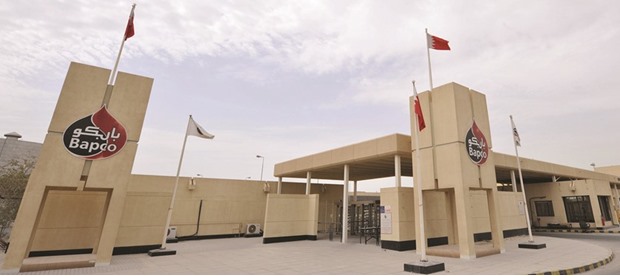Bahrain’s oil investment company Nogaholding is taking a $570mn Islamic loan to pay for expansion projects, including improvements to the island nation’s only refinery and construction of a liquefied natural gas import terminal.
The company arranged the five-year Murabaha facility with 10 banks including Bank of Tokyo-Mitsubishi UFJ, BNP Paribas and HSBC Holdings, it said last week in an e-mailed statement.
The investment arm of Bahrain’s National Oil & Gas Authority will use the money to help finance planned energy investments of more than $7bn in the country, Mohamed bin Khalifa al-Khalifah, chief executive officer of Nogaholding, said in a telephone interview. The country will also tap project finance and export credit markets for future funding, he said.
Bahrain, the smallest oil producer in the Gulf, pumps most of its crude from a field it shares with Saudi Arabia, the world’s largest exporter. The country is seeking to expand output capacity at its wholly owned Bahrain field, site of the Gulf’s first oil discovery in 1932, to 100,000 bpd by the end of the decade. The Bahrain field produced 44,000 bpd in 2014.
The drop in oil prices of almost 30% in the past year has squeezed government income for crude-exporting countries but has also driven down engineering and construction costs for new energy projects.
“We’ve seen a significant reduction that is favourable to us due to commodity prices going down and the market slowing down a bit,” al-Khalifah said of project costs.
Nogaholding increased the amount it borrowed from the initial $350mn it sought after lenders offered more funds, he said. “With the over-subscription and the amount of projects we have in the pipeline, we thought we’ll take advantage of the response in the market,” he said.
The company will pay a margin of 2.25 percentage points over the London interbank offered rate for the first three years of the facility and 2.75% over Libor in the last two years, al-Khalifah said.
State-run Bahrain Petroleum Co, which operates the country’s 260,000-bpd refinery, will boost the plant’s capacity to 360,000 bpd by 2020 to produce higher-quality fuels. Bapco also plans to upgrade the facility to produce cleaner-burning and more lucrative jet fuel and diesel, he said.
Bapco plans to award engineering and construction contracts for the refinery next year and is working with advisers BNP Paribas and HSBC on the funding plan for the refinery. The project will cost less than $5bn, al-Khalifah said.
Bahrain also plans to build an import terminal for LNG, which it needs as fuel for power plants and industries, and upgrade its capacity to process natural gas, according to the Nogaholding statement. The LNG terminal, with annual capacity to process 3mn metric tonnes a year of liquefied gas, will be completed in 2018, al-Khalifah said.

State-run Bahrain Petroleum Co, which operates the country’s 260,000-bpd refinery, will boost the plant’s capacity to 360,000 bpd by 2020 to produce higher-quality fuels. Bapco also plans to upgrade the facility to produce cleaner-burning and more lucrative jet fuel and diesel.
